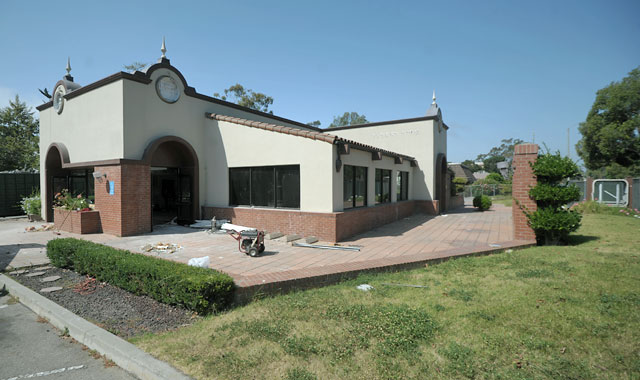When Abstinence Is Not the Best Policy
ABR Member Resigns over Chik-fil-A Controversy

Although Chik-fil-A has yet to serve its first chicken sandwich in Santa Barbara, the food fight surrounding the fast food eatery now more famous for donating millions to anti-gay causes is both fast and furious and shows no sign of abating.
This Wednesday, architect Keith Rivera tendered his resignation from the city’s Architectural Board of Review (ABR) in response to the backlash of criticism he and four other board members sparked by abstaining from a vote over minor, last minute changes proposed for the Chik-fil-A that will soon open at 3707 State Street. “I do not want to have my continued presence on the board become a distraction to its work and proceedings and I apologize that my decision in this isolated instance may have done just that,” he wrote in a letter to Mayor Helene Schneider. “The integrity of the City’s outstanding design review process is too important for that.”
Rivera’s resignation came shortly after city councilmembers Frank Hotchkiss and Randy Rowse submitted a letter requesting that the Chik-fil-A controversy be brought to the City Council to determine, among several options, whether the entire ABR should be fired from their appointed posts and replaced. Like all members of the City Council, Hotchkiss and Rowse were upset that five members of the ABR — including Rivera — abstained on the Chik-fil-A vote, in part because of their opposition to the anti-gay views recently expressed by company executive Donald Cathy in a media interview. But Hotchkiss and Rowse have been especially adamant that the offending board members suffer some public consequences for letting considerations about the owner of a project cloud their decision making about the merits of the project’s design.
Rivera was one of the two ABR members to specifically site political considerations when voting to abstain. (The other is Gary Mosel, owner of a plumbing company, who serves on the board of a gay and lesbian business organization.) Both have insisted they thought the city’s ethics guidelines allowed them to abstain when they felt their personal feelings might otherwise preclude them from rendering a fair and impartial judgment about a project’s design details. “The ethics training the board received earlier this year emphasized that if we had any doubt about a potential conflict of interest we should step down from the item and so I did,” Rivera wrote. He added, “I agree with members of the community, City Council and design profession that personal beliefs have no part in the evaluation of a design review application. My actions above as an ABR member were to assure that was the case for this applicant.”
Ironically, it may have been the dust-up from a conflict of interest incident that led to the resignation of another ABR member earlier this year — architect Clay Aurel — that made current members think they needed to abstain or recuse themselves in the Chik-fil-A matter. Certainly, that’s what ABR member Chris Gilliland said by way of explanation and apology during this Monday’s ABR meeting. City administrators, somewhat skeptical of this line of reasoning, point out that the Aurel matter involved an actual financial conflict of interest, while the Chik-fil-A dispute involved a profound difference of opinion over political policy and civil rights. (Two of the abstaining members did not cite political issues at all, but rather said that they’d missed meetings and were not conversant enough with the details of the application to vote on them.)
While all council members have agreed the abstentions were inappropriate and improper, there’s a wide divide over what should be done about it. Mayor Schneider and Councilmember Cathy Murillo have argued that the ABR members learned their lesson, the point has been made, and that the council should move on. They’ve been eager to avoid a politically charged demolition derby in the City Council chambers — now scheduled for September 25 — out of which, they believe, only bruised feelings and ill will can come. Efforts to dissuade Hotchkiss and Rowse — who insist that the integrity of the city’s design review process has been compromised — have proven fruitless. Likewise, the heat with which Hotchkiss and Rowse have proceeded has made it harder to persuade some members of the design review board to publicly acknowledge abstaining improperly.



